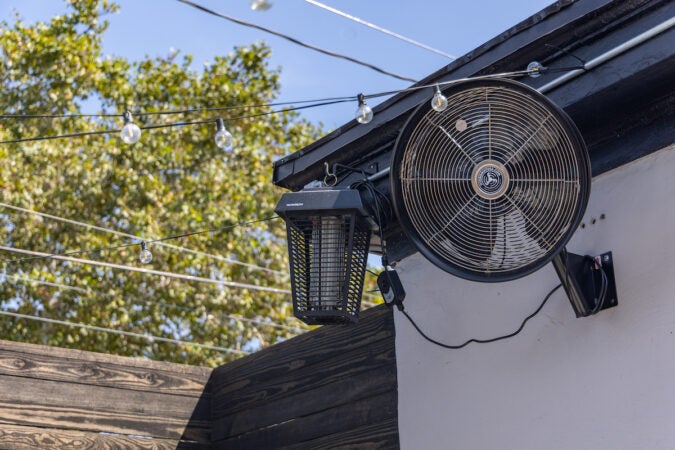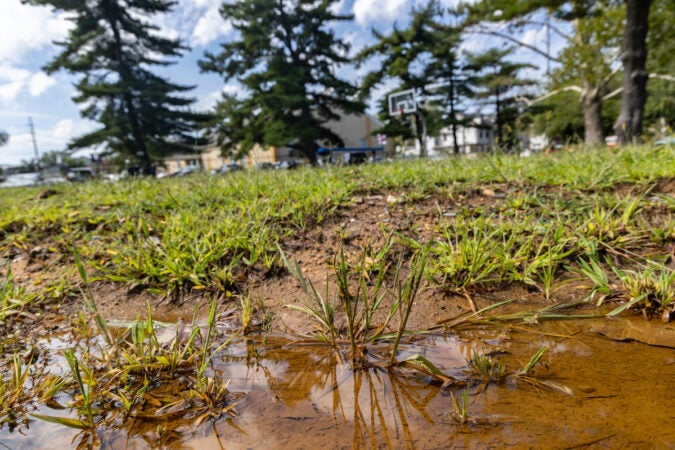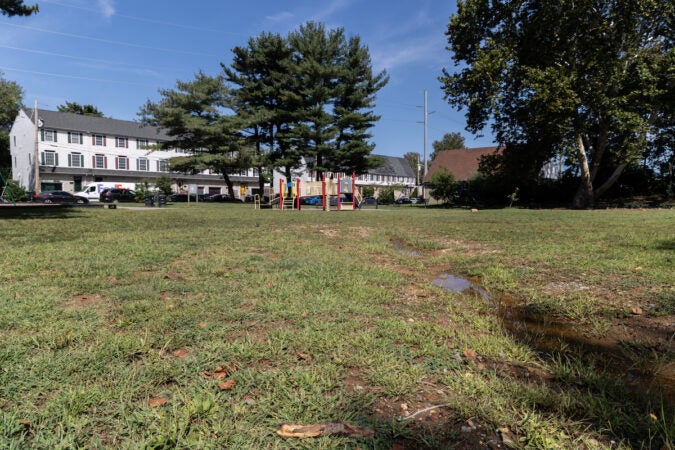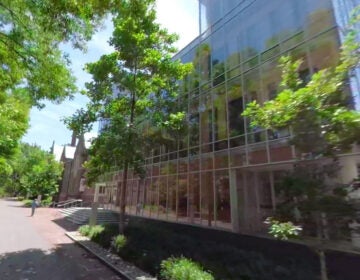‘They’re gonna get you’: Southbridge residents seek relief from decades-old mosquito problem
Scientists say the mosquito problem could worsen as climate change threatens more rain and increased sea levels.
Listen 5:23
Big Tom’s Tavern owner Thomas Jackson keeps mosquito candles behind the bar for customers who utilize the bar’s patio. (Kimberly Paynter/WHYY)
This story is part of the WHYY News Climate Desk, bringing you news and solutions for our changing region.
From the Poconos to the Jersey Shore to the mouth of the Delaware Bay, what do you want to know about climate change? What would you like us to cover? Get in touch.
When residents in Wilmington’s Southbridge neighborhood come home from work, they’re chased into their homes by bloodthirsty mosquitoes.
The nagging insects are so determined, neighbors say, bug spray doesn’t deter them.
Residents say they sometimes feel trapped in their own homes, knowing the mosquitos await their next victim on the other side of their front door.
“You can’t even spend a nice night under the stars. There is no night activity where you can say, ‘Let me pop up a tent for the kids and have some roasted marshmallows,’” said Melodi Robinson, a long-time Southbridge resident. “You can’t do nothing like that, because the moment you step out the door, they’re there to greet you.”
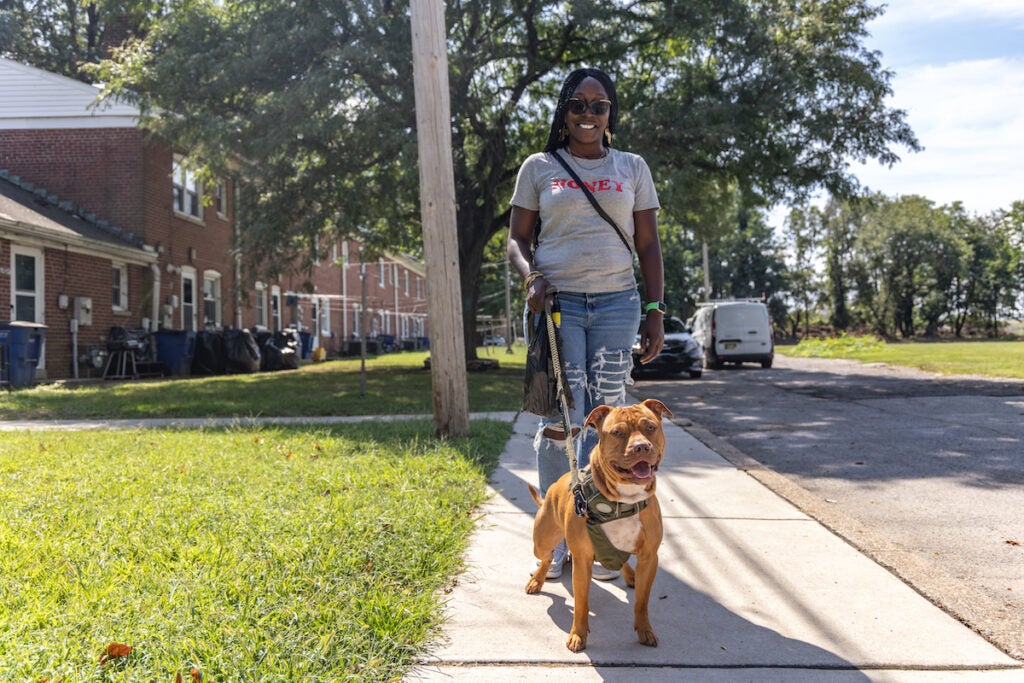
Mosquitos have been a nuisance in Southbridge for decades. The issue has been compounded by severe flooding in this low-lying part of Wilmington, surrounded by the Christina River.
The historic neighborhood’s century-old flood control system, which involves large iron flaps called floodgates, has a history of failing during bad storms. An inspection of the system several years ago revealed some floodgates were held together by rope, and sediment had built up among storm grates.
Increased nearby development has also inundated the community with stormwater runoff that doesn’t drain properly. All that sitting water provides a breeding ground for mosquitoes.
Scientists say the mosquito problem could worsen as climate change threatens more rain and increased sea levels.
“With increased rain events and flooding events, we’re having more of these other unanticipated consequences that sometimes get pushed to the side — and mosquitoes are one of them,” said Bart Wilson, regional geomorphologist for the U.S. Fish & Wildlife Service.
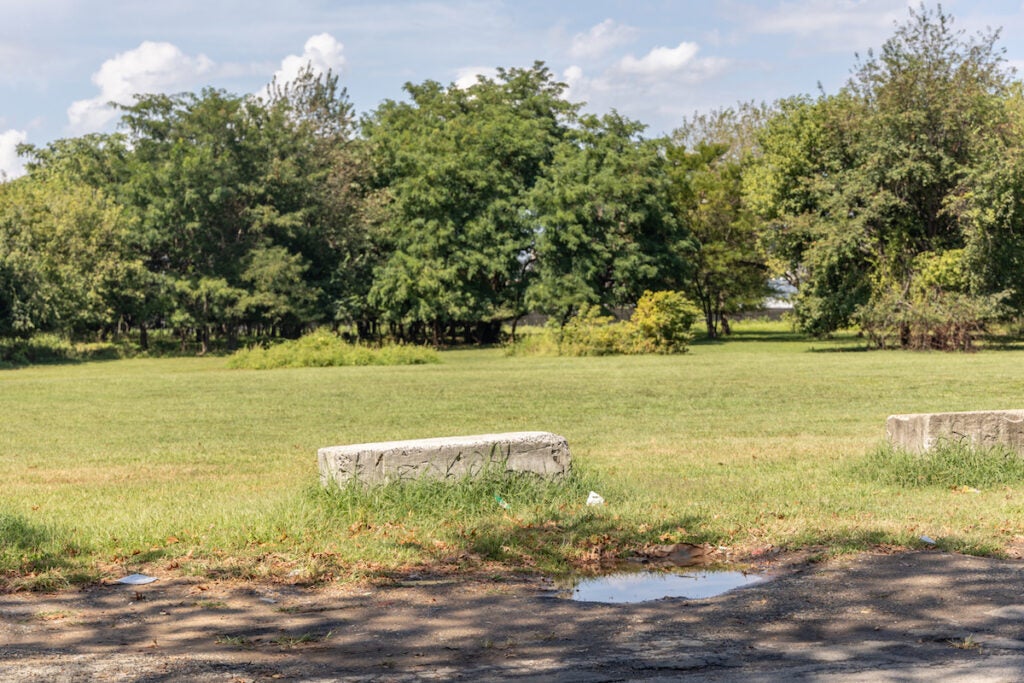
A more persistent mosquito
There are about half a dozen problematic breeds of mosquitos in Southbridge, said William Meredith, an environmental program administrator for Delaware’s Department of Natural Resources and Environmental Control’s mosquito control section.
One of the most bothersome breeds is the Asian tiger mosquito — these black and white invasive insects are more aggressive biters, Meredith said.
He said the species is difficult to reduce, because they can breed almost anywhere, including in a bottle cap filled with water. They also fly during the afternoon, which makes spraying difficult when trying to prevent human exposure.
“We’re just going to get more exposure of people to pesticides, which we try to minimize,” Meredith said.
The mosquitoes are just one quality of life issue plaguing this largely low-income community. The predominantly Black neighborhood is surrounded by contamination from former industrial sites, and has historically been underinvested.
Residents including Melodi Robinson say they believe the mosquito problem is just one example of how the community has been ignored by the city.
“We are now looking at un-maintenanced trees and shrubbery, wetlands, puddles of water, places where there could be nesting grounds for thousands, maybe even millions of mosquitoes,” she said as she walked her dog through her neighborhood.
Residents say they’re concerned about the potential for mosquito-borne diseases such as West Nile. Common house mosquitos, another breed that nags Southbridge residents, are known for carrying the disease.
Thomas “Gash” Jackson invests in bug zappers and exterminators to protect customers at his Southbridge bar, Big Tom’s Tavern.
“The mosquitoes are going to tear you up,” he said. “Over here specifically, no matter what kind of clothes you wear … they get through all that. They’re gonna get you.”

There have been three human infections of West Nile in New Castle County, Del. this year. A spokesperson for the state’s Division of Public Health said the department cannot disclose specific locations for the infections.
DNREC sprays mosquitoes and larva in Southbridge on an as-needed basis — which could be about half a dozen times per year. Many residents say they’re concerned there could be associated health risks. Though there’s always an element of risk with spraying, Meredith said, the agency takes several steps to reduce health hazards.
He added that addressing standing water is the most preferable way to eliminate mosquitos.
Former City Council President Hanifa Shabazz, who lives in Southbridge, said she doesn’t believe the spraying offers much relief.
“It might work for that day or so, but as soon as another batch of mosquitoes hatch, and I believe they hatch very quickly, we’re back at being attacked again,” she said.

Some residents try to protect themselves by placing tiki torches around their homes, which could irritate the respiratory tract.
“We continually compound ourselves over here with toxins and things just to have a quality of life — and no one should have to live that way,” said Shabazz, who is the executive director of the Southbridge Community Development Corporation.
Investing in Southbridge
The city and state have recently made some investments to improve flooding in Southbridge. The South Wilmington Wetlands Park opened last year in an effort to clean up one of the city’s largest brownfields, and to help mitigate flooding. The project involves upgrading the sewer system, to allow water to flow through new stormwater pipes and into restored wetlands, where it will be held and gradually released into the Christina River. However, these initiatives only help the west portion of Southbridge.
The Delaware Nature Society hopes to relieve some of the flooding on the east side of the neighborhood. Kerry Wilson, the nonprofit’s habitat outreach coordinator, said mosquitos breed behind Barbara Hicks Playground — where kids often light bonfires so they can play basketball without getting attacked by mosquitoes.
Water in an adjacent wetland doesn’t flow freely because it’s choked by invasive plants.
“You can see just a little bit of water pooling here from the rain that we had earlier, just in a little depression in the park,” Wilson said as she walked through the park, located off Bradford Street. “So, it’s even areas like this, if that stays standing for seven days …. that’s going to then generate another whole population of mosquitoes.”

The nonprofit wants to build rain gardens, which are designed to collect and store stormwater runoff that eventually drains away. Nonprofits, including the Delaware Nature Society and the National Fish and Wildlife Foundation, in partnership with government agencies, are also seeking funding to help the wetland function and improve the sewer system, so water in the area can drain more effectively.
“If you have this area that is constantly breeding mosquitoes and never drying out, never draining, then the problem never has a chance to get better,” said Bart Wilson of the U.S. Fish & Wildlife Service. “If you create a healthy ecosystem and drainage pattern, then that could actually eliminate a lot of the mosquitoes that are just basically trapped there.”
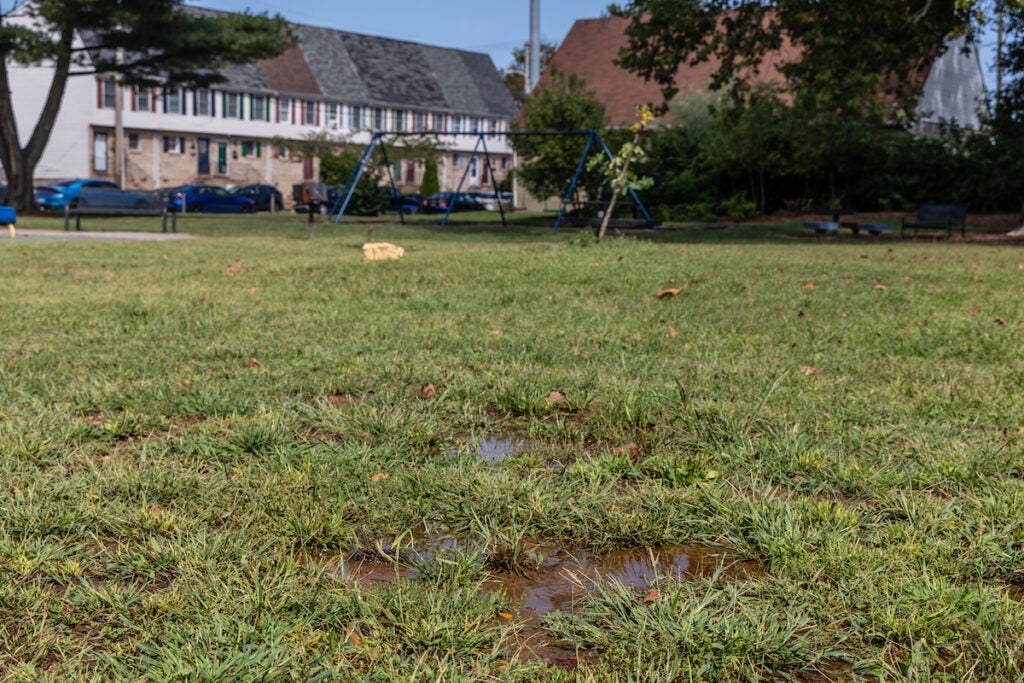
It’s not the only initiative being proposed. The city will soon place bat houses in some parks to reduce the need for mosquito spraying. Leonard Williams, superintendent of park maintenance for Wilmington’s parks and recreation department, said the city wants to dispel fears about the mosquito-eating bats.
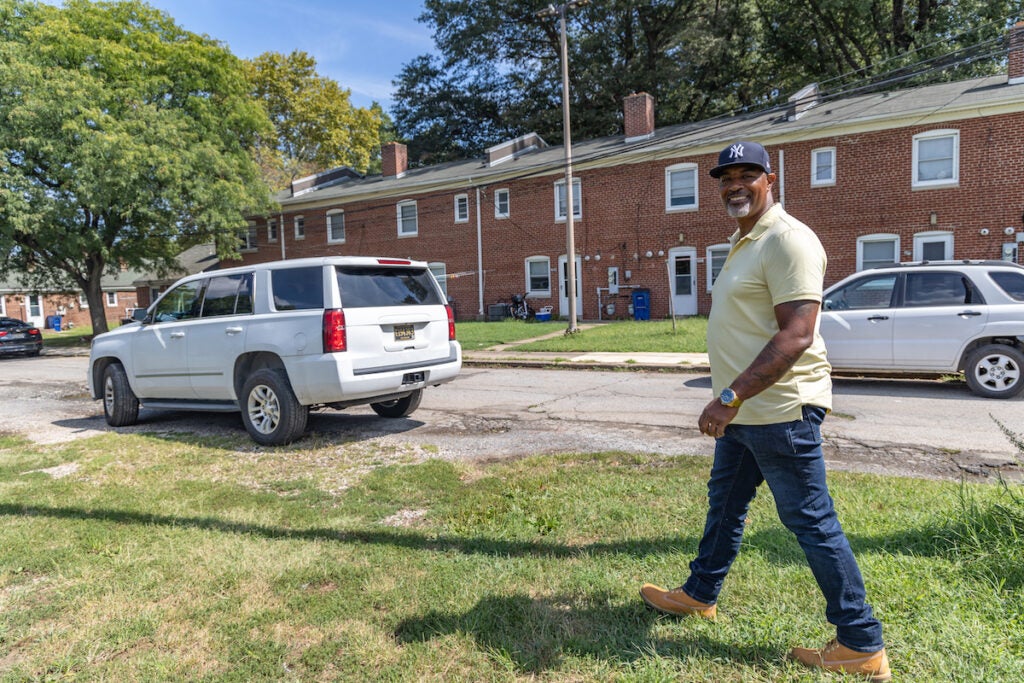
“The misconception is that they fly into people’s hair,” Williams said. “[But] they don’t look for people — they try to avoid people. Their main objective is to eat bugs and insects.”
Residents may have some relief soon, because Asian tiger mosquitos die out during the winter, Meredith of DNREC said. However, common house mosquitos are likely to linger — though they may be less persistent.
DNREC receives about 2,000 to 4,000 complaints per year about nuisance mosquitos throughout the state. The agency encourages the public to report mosquito problems. Meredith recommends residents and businesses to take part in efforts to reduce standing water.
“It makes our job easier if residents, property owners and corporations are doing what they can to police water on their property,” he said.

Get daily updates from WHYY News!
WHYY is your source for fact-based, in-depth journalism and information. As a nonprofit organization, we rely on financial support from readers like you. Please give today.



